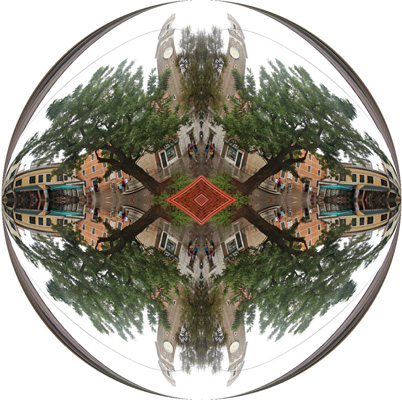
The ten thousand hours practice theory of genius, expounded by Malcolm Gladwell in his book, Outliers, continues to intrigue me. Hoping to find some valuable data in musical history, I tried to find masterly music written at the earliest possible age. I immediately thought of the two most famous child prodigies, Mozart and Mendelssohn. A famous quote by Goethe compares the two:
"Musical prodigies ... are probably no longer so rare; but what this little man can do in extemporizing and playing at sight borders the miraculous, and I could not have believed it possible at so early an age." "And yet you heard Mozart in his seventh year at Frankfurt?" said Zelter. "Yes", answered Goethe, "... but what your pupil already accomplishes, bears the same relation to the Mozart of that time that the cultivated talk of a grown-up person bears to the prattle of a child."
Mendelssohn wrote his marvellous String Octet aged 16, and the famous overture to A Midsummer Night's Dream a year later. The earliest major piece by Mozart seems to be his First Violin Concerto, written when he was 17. I'm no musical scholar, but I bypass Mendelssohn and Mozart and award the Teenage Prodigy Prize to Beethoven, for his wonderful first piano quartet written when aged just 15.
I should also mention that Bizet wrote his very attractive symphony at 16 and that Chopin began writing polonaises aged 7.
What about our own time, are there any prodigies? I'll stick my neck out. I think Alma Deutscher, born in February 2005, is a genius.
What impressed me most was Alma improvising on four notes. I think Mozart would not be ashamed of the result.Not many musicians can boast being a soloist in a public concert (the Carinthian Summer music festival in Austria in 2017) with an orchestra where they played two different instruments. To top it off, both the concertos Alma played were written by her. The German violinist Anne-Sophie Mutter wrote that "it is absolutely extraordinary what this young girl has managed to achieve on the violin, the piano, and in her compositions. Her musical sensitivity and her powers of expression already at this age underline her exceptional talent."
She plays her violin concerto, written aged 9:
Alma playing a cadenza to a Mozart concerto. Her improvisation starts at 6,18.
Her piano concerto of 2017.
Deutscher has explained that her seemingly spontaneous style of composition obscures the harder work involved in creating larger and complex compositions, where the idea or initial melody is only the first part of a much longer process. She explained: "Lots of people think that the difficult part of composing is to get the ideas, but actually that just comes to me. The difficult bit is then to sit down with that idea, to develop it, to combine it with other ideas in a coherent way. Because it's very easy to throw a soup of lots of ideas which don't make any sense together. But to sit down and develop and combine it, and afterwards to tweak it and to polish it - that takes ages."
She mentioned that some people have expressed to her the view that one should not compose beautiful melodies in the 21st century, but that music must reflect the complexity and ugliness of the modern world. "But I think that these people just got a little bit confused. If the world is so ugly, then what's the point of making it even uglier with ugly music?". She then cited the lullaby by Richard Strauss as her early inspiration for trying to write beautiful music... Asked about her dreams for the next 10 years, she said: "...but the best thing would be if people stopped telling me how it is allowed or not allowed to compose in the 21st century. I hope they will have stopped counting my dissonances. And I hope that in ten years' time, it will not be considered a crime to want to compose beautiful music."
More on Alma Deutscher.